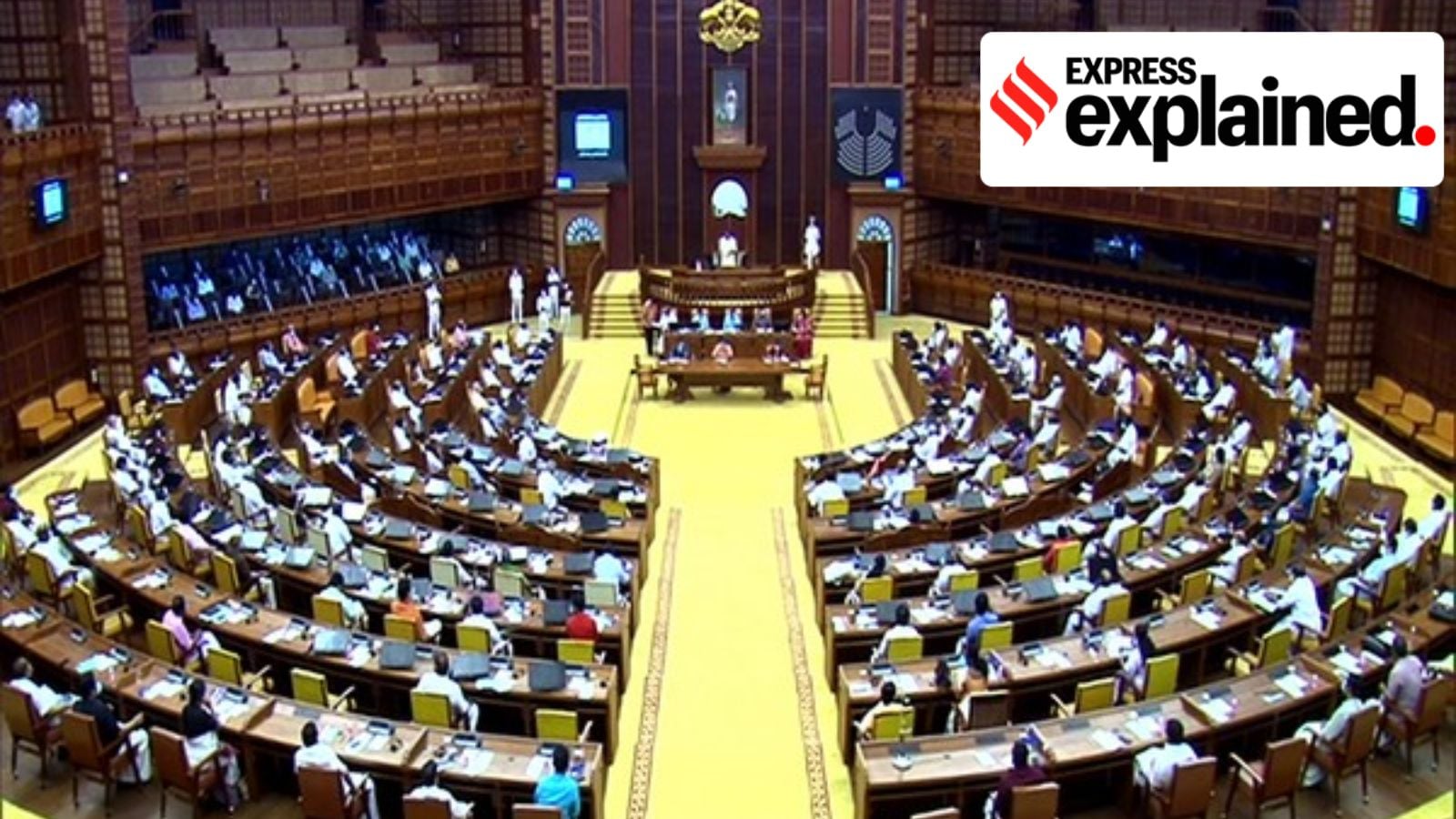All about Kerala State Private Universities Bill and the Left’s changing stance on pvt education
The Left has historically opposed private involvement in education in Kerala. Currently, Kerala is the only state without private universities.
 Currently, Kerala is the only state without private universities. (ANI)
Currently, Kerala is the only state without private universities. (ANI)The Kerala assembly Tuesday (March 25) passed a draft bill that will now allow entry to private universities in the state.
The Kerala State Private Universities (Establishment and Regulation) Bill, 2025, was passed after two days of legislative deliberation. It was presented in the assembly earlier this month and referred to a subject committee for review.
This marks a significant shift in the stance of the Left which has historically opposed private involvement in education in the state. Currently, Kerala is the only state without private universities. Here is what to know.
What are the key provisions of the bill?
- 01
GOVERNMENT NOMINEES
The Kerala State Private Universities (Establishment and Regulation) Bill provides for government representatives or nominees in all three key decision-making bodies of private universities – the governing, executive and academic councils.
The university’s governing council will control its functioning and make its statutes. According to the bill, it will have three government representatives out of its 12 members – the Secretary of the Higher Education Department, another Secretary, and an eminent academician nominated by the government. Four of the remaining members will be nominated by the sponsoring body that sets up the university.
The university’s executive council will control the university’s funds and property. Of its nine members, one will be a government nominee. Similarly, the academic council, which will advise the university on academic matters, will have three government nominees. The government nominees in both councils will attend all meetings where decisions involving government policies or instructions are to be taken.
- 02
MULTIPLE CAMPUSES
The bill allows for the establishment of ‘multi-campus’ universities. It stipulates reserving 40% of the seats in each course for permanent residents of the state. Among these, reservations for SC/ST/OBC students would apply, according to the state’s Minister for Higher Education, R. Bindu.
- 03
STUDENTS’ COUNCIL
The bill also provides for a students’ council headed by the Pro Vice Chancellor. It will have 10 elected student members, including one student from the SC/ST communities and two female students.
- 04
REGULATORY BODY
According to the bill, this body would be established by the government “to promote teaching, research, development, training.”
How does it compare with legislation in other states?
According to the University Grants Commission’s 2024 data, there were 471 private universities across the country. Gujarat has the largest number of private universities (65), followed by 53 each in Rajasthan and Madhya Pradesh.
Some states have overarching legislation regulating private universities, like Haryana, Uttar Pradesh, Gujarat, Tamil Nadu, and Andhra Pradesh. In others, like Karnataka, there is a separate Act for the establishment of each university.
The extent of government representation in the university’s bodies, and the proportion of seats reserved for students from the state varies across states. In Tamil Nadu, the Private Universities Act, 2019, says 35% of seats in each course will be set aside for students from the state, while this figure is 40% in Karnataka. Haryana’s 2006 Act provides for a minimum of 25% of seats in the university to be reserved for students of the state, which includes 10% for students belonging to the Scheduled Castes of Haryana.
Haryana and Karnataka provide for the state governors to serve as the Visitor of private universities, while the bill in Kerala does not mention a Visitor. In addition to presiding over the convocation, the Acts in Haryana and Karnataka say that the Visitor can call for information on the university, and issue directions if the university is found not complying with the rules.
TN provides for two government representatives in the executive council, while in Haryana, the governing body must have one government representative. The acts in Karnataka provide for a government representative and a government nominee on the concerned university’s Board of Governors.
What prompted the state’s decision to allow private universities?
Bindu said that the bill was formulated following the recommendation of the Shyam Menon Commission in its 2022 report. The Commission for Reforms in Higher Education as it is officially known, was instituted shortly after the 2021 assembly election, and was headed by Shyam B. Menon, former Vice Chancellor, Dr. B. R. Ambedkar University, Delhi. According to the minister, this move is in line with a 2021 electoral promise to make Kerala a higher education hub.
She added that the report mentioned the number of private institutes in the state as outnumbering the government ones, with some of the private institutes of sub-par quality.
“If you look at higher education institutions in the state today, only 20% are government, and 80% are in the private sector, aided and unaided,” she said. “Today, students are mortgaging family land to be able to go abroad, and the availability of education loans has gone up. Our children are also going to private colleges in Bangalore…we can at least get them to stay back here.”
She also said there was a “dogma” of viewing education in private institutions as a status symbol that boosted a sense of false prestige, as opposed to attending a public university. “It is not that our public universities lack quality. There is good quality, and good teachers, but going to a government-run institution is seen as a shame,” she said.
How has the Left changed its stance on private institutions in Kerala?
In the past, the CPI(M) and its student wing, the SFI, vehemently opposed private sector involvement in education. The Left protested private polytechnics in the 1980s and the establishment of a medical college in the cooperative sector in the 1990s, opposed the then Congress-led United Democratic Front (UDF) government’s decisions on allowing self-financing engineering and medical colleges in the early 2000s, and granting autonomy to certain colleges in 2014. They alleged private management would have free rein without government control, resulting in the “commercialisation” of education.
Bindu justified this transition saying, “Many years ago, the attempt was to destroy our public universities and privatise indiscriminately. As part of that, unaided institutions began to mushroom. In that context, it (privatisation) was wrong. This is not the situation today. Today, we are prioritising and strengthening the public sector, while introducing the possibility of private investment.”
Opposition leader VD Satheesan of the UDF said that they do not oppose private universities in the state, but the bill does not address key issues facing higher education in Kerala. “These are the issues of brain drain and a drastic fall in the number of students in government, aided and unaided colleges,” he said, referring to seats going vacant in colleges in the state.
- 01
- 02
- 03
- 04
- 05






































